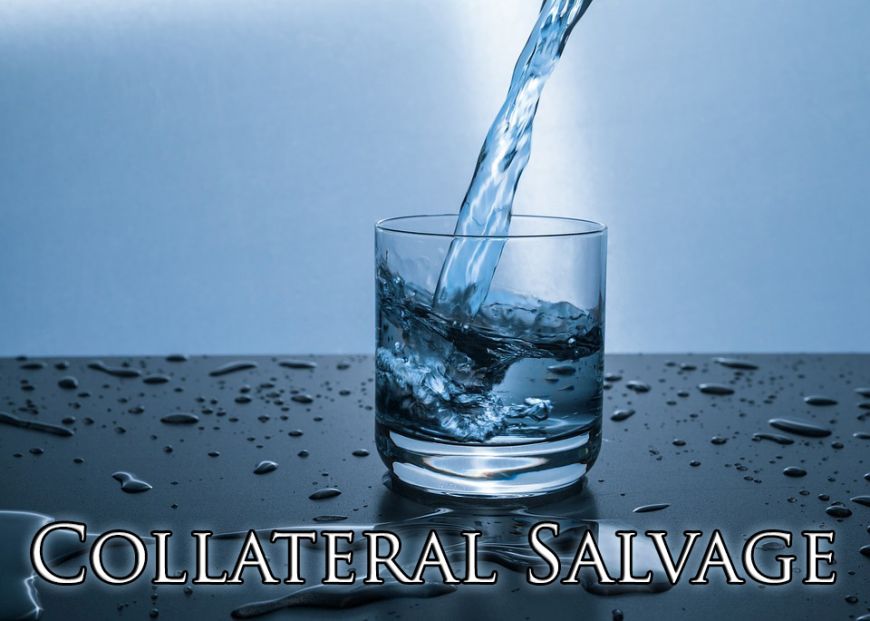More than any other substance, water defines our bodies and the world we live in. Over 70% of our planet’s surface is covered with water and about 60% of our body is composed of water. Despite being odorless, flavorless, colorless, and containing no caloric value, life as we know it is not possible without water. But what is it and why is it so vital?
First, science
Water is a molecule made up of an oxygen atom and two hydrogen atoms. Aside from keeping us alive it’s used for everything from sports and recreation to transportation and industry. In our bodies, water acts to regulate our body temperature, to lubricate our joints, as a solvent for nutrients, as a vehicle of waste extraction, and to maintain the physical equilibrium of our body (homeostasis).

When we drink water it passes through our stomach and into our small intestine where over 80% is absorbed into the bloodstream. Our blood is made up of red blood cells (oxygen carriers), white blood cells (defense mechanism), platelets (clotting agents), and plasma (the liquid medium in which the previous three molecules are suspended). Unlike the blood cells which are produced by our body, our blood plasma comes entirely from the water we drink and the food we eat. Plasma accounts for about 55% of our blood, and water accounts for about 92% of our plasma.
Water also acts as a solvent for nutrients that enter our body such as sugar and salt. Our blood transfers these dissolved nutrients to a water-rich fluid medium that surrounds our cells called the interstitial fluid. This fluid — which makes up over 25% of our total body water — is the medium through which nutrients are transferred from our blood to our cells (which contain over 60% of our total body water).

Once our cells have processed the nutrients they need, water is the means by which waste products are expelled from the body. Our kidneys filter the waste out of our blood and expel it via urine, which is mostly made up of water.
Water also plays a crucial role in regulating our body heat. Our blood (mostly water) is responsible for evenly distributing the heat our body produces. On the other end of the spectrum, sweat is responsible for cooling our body down. As sweat evaporates off of our body, it takes a bit of our heat with it, in much the same way we feel cold when first getting out of the pool.
Where things go wrong
Water is responsible for keeping our body at a baseline. Things go wrong when we don’t get enough. Our blood volume drops, specifically our plasma volume, which causes our hearts to work harder, trying to supply the same nutrients with less to work with. Without enough water our body can’t sweat and will begin to overheat. We become irritable and get a headache. We can’t think straight.
Failing to keep ourselves hydrated over longer periods of time can be even worse. Poor water intake has been linked to a higher incidence of kidney stones and exercise related asthma.
What to do
The good news is that for most of us, water is easy to come by. Aside from drinking it, it’s in nearly everything we eat or drink. Unfortunately, I can’t tell you exactly how much water you need to drink in a day. Daily needs vary from individual to individual based on metabolism, body size, life-style, age, gender, and genetics. Compounding the difficulty is that water needs are often overlooked and understudied, most likely because it is such a basic need.

The most widely known advice about water is to drink eight 8-ounce glasses of water per day. This recommendation was made because for most people it’s more than adequate and it’s easy to remember. In the absence of kidney problems, it’s virtually impossible to drink too much water.
The best advice is to listen to your body: if you’re thirsty, drink.
